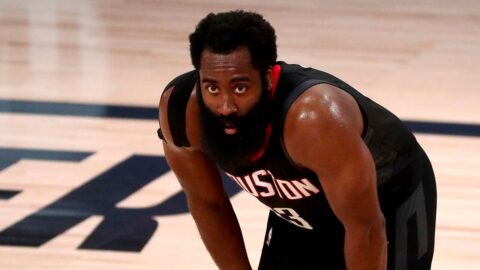Auburn football coach Hugh Freeze weighed in Thursday on Michael Oher’s petition filed in Tennessee court to end the conservatorship the Tuohy family set up for him. Oher’s life story was the inspiration for the book and film “The Blind Side.”
Freeze played an integral role in Oher’s life. He served as the football coach at Briarcrest Christian High School in Memphis, where Oher played football. The offensive lineman later played at Ole Miss and turned pro, playing for the Baltimore Ravens, Tennessee Titans and Carolina Panthers from 2009 to 2016.
“I love Michael Oher. He’s like part of our family. I love the Tuohys,” Freeze said, via The Auburn Observer. “I think it’s sad, and I certainly don’t claim to understand all the ins and outs of adoption, conservatory, all of that. But I know what I witnessed, and I witnessed a family that totally took in a young man. And I think without that, there is no story.
CLICK HERE FOR MORE SPORTS COVERAGE ON FOXNEWS.COM
Freeze added that if Oher were to call the Tuohys to work their issues out, the Tuohys would be the first one to hug him and “tell him he’s loved.”
“I think it will all . . . whatever happens will happen, of course,” Freeze added. “The facts will come out. But, you know, I love both sides of it. Sean and Leigh Anne Tuohy did something that most families . . . . A lot of us talk about doing things, but they actually put the shoes on and pulled the boots up and got in the arena and did something. I think that’s admirable.”
Oher filed a lawsuit Monday claiming the Tuohys never adopted him but created a conservatorship over him. Oher says he received nothing from the movie. The Tuohys’ lawyer said Wednesday they estimated Oher and the family received $100,000 apiece, and the couple paid taxes on the player’s portion.
One of the Tuohy lawyers, Randall Fishman, said that the family is looking to end the conservatorship. He said the family intends to enter into a consent order to end the conservatorship and that Oher mentioned being conservators for him three times in his 2011 book, “I Beat The Odds: From Homelessness to the Blindside and Beyond.”
The family’s attorney also said the Tuohys and Oher had been estranged for about a decade. Steve Farese said that Oher had become “more and more vocal and more and more threatening” over the past decade or so, and this is “devastating for the family.”
Oher claimed that the Tuohys falsely represented themselves as his adoptive parents and said he discovered this past February that the conservatorship was not the arrangement he thought it was.
Michael Singer, another attorney who represents the Tuohys, said Tuesday that Oher threatened to “plant” a negative story in the press about the family unless they paid him $15 million. Singer denied the allegations leveled against the Tuohy family in Oher’s petition to end their conservatorship, calling them “hurtful and absurd.”
MICHAEL OHER CONSERVATORSHIP CASE RAISES MORE QUESTIONS THAN ANSWERS, LEGAL EXPERT SAYS
Singer added that the family has been “upfront” about how and why the conservatorship was established and that they “will never oppose it in any way” if Oher chooses to terminate it.
The conservatorship paperwork was filed months after Oher turned 18 in May 2004. Oher accused the family of never taking legal action to assume custody of him from the Tennessee Department of Human Services before he turned 18. However, he says he was forced to call Sean and Leigh Anne Tuohy “Mom” and “Dad.”
Oher says he had been “falsely advised” that it would be called a conservatorship because he was already 18, but that adoption was the intent.
Fishman said that the couple did not adopt Oher because the conservatorship was the quickest way to satisfy the NCAA’s concerns that the family was not just steering him to Ole Miss to play football (the Tuohys’ alma mater), a belief that author Michael Lewis also mentioned to The Washington Post.
As for the proceeds from the film, the couple said agents negotiated a small advance for them from its production company. They said that included a “tiny percentage of net profits” divided equally among a group that included Oher. Attorneys said they estimated that Oher and the family received $100,000 apiece, and the couple paid taxes on the player’s portion.
The Tuohys said the conservatorship was set up to help Oher with health insurance, get a driver’s license and be admitted to college. In Tennessee, a conservatorship removes power from a person to make decisions for himself. It is often used in the case of a medical condition or a disability.
Oher’s petition said the conservatorship had been approved “despite the fact that he was over 18 years old and had no diagnosed physical or psychological disabilities.”
The Associated Press contributed to this report.








Recent Comments